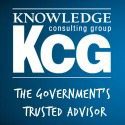
Mike Cerniglia, Executive Vice President and Chief Technology Officer (CTO) of MicroPact, sat down with the WashingtonExec to discuss the company’s mobile initiative, protecting data, and how he and company CEO Kris Collo founded MicroPact while still in undergraduate school.
Cerniglia also discussed the process of implementing a BYOD policy in his own company as well with the federal government.
WashingtonExec: Could you tell us a little bit about your background, how your role at MicroPact has evolved?
Mike Cerniglia: My current role at MicroPact is Chief Technology Officer and Executive Vice President. I’ve been with the company since the inception. Over the years my role here has evolved but predominantly what the team and I have focused on is the development of enterprise software products for federal government and Fortune 500 organizations.
WashingtonExec: How is MicroPact currently involved with Federal mobility?
Mike Cerniglia: Our focus is on the natural evolution of technologies and their integration into the workplace as they facilitate a mobile enabled workforce. If you look back a few years you’ll see that as many organizations began to web-enable their business applications, the cost and the effort they expended in order rewrite and re-architect those applications was immense. One of our key goals has always been to future-proof our technology as much as possible by leveraging open standards and building in more of a SOA architecture so that incorporating new technologies and capabilities becomes a more economical and straightforward process. As a result, as this current mobile enabling trend expands, it will be very easy and straightforward for our customers to take their applications mobile by leverage the existing investment that they’ve made into our Unified BPM platform, entellitrak.
WashingtonExec: How has mobility changed the way you and your employees do business?
Mike Cerniglia: In 2010 to kick start our mobile initiative we gave everybody in our company an iPad at our holiday party. It turned out that the iPads weren’t just a great gift, they were a great investment too. We very quickly learned that while the mobile technology can very rapidly boost productivity, it can also impose a substantial strain on your infrastructure. On the productivity side, people immediately began using the iPads in meetings. Team members were sharing documents and information more easily, they were seeking out apps to make themselves more productive and better manage their projects and tasks and they were collaborating with other members on their team through diagramming software and similar tools. On the infrastructure side, the sudden burst of mobile activity and the system demands it created have been a great learning lab for our development and IT infrastructure teams – we’re learning it by living it. Mobile enabled devices and applications are here to stay and will be a part of people’s lives. So far for us, they are a positive part.
WashingtonExec: Do you think the federal government is doing a good job in implementing a “mobile first” strategy?
Mike Cerniglia: We constantly build and evolve our technology strategy to match the needs of our customers throughout the federal government. As a company we are in well over 140 different federal agencies, so we get input from many different perspectives. For awhile there it seemed like mobile was moving very slow in that not many organizations were willing to adopt it because of issues with security, device management and all of the things you hear about today. Now suddenly, it seems like overnight mobile has become the new thing and the cloud – well that’s yesterday’s news. Of course mobile is the next natural evolution of what we’ve seen in technology as we’ve moved from desktop to client server to web based, to now mobile. On the up-side, we have a lot of good references and history to learn from that will help guide us as we encounter new issues. Given the current hype and real value people see in the technology, the shift to mobile will come sooner than many organizations expect.
———————————————————————————-
“A good guiding principle is that you always assume that a device can be jeopardized – there are a lot of things that you need to consider and plan for. For us, our main concern is how to protect the data. Data is king in terms of what we do in business process management, document management and case management type solutions.”
———————————————————————————-
WashingtonExec: Where do you view the line between security and innovation?
Mike Cerniglia: A good guiding principle is that you always assume that a device can be jeopardized – there are a lot of things that you need to consider and plan for. For us, our main concern is how to protect the data. Data is king in terms of what we do in business process management, document management and case management type solutions. We have all seen the news stories about laptops that have been taken and information that has been compromised. To me, security should never be compromised at the cost of innovation. Just like your 401K and your house and everything else – there is never enough security. At a minimum organizations should be able to protect their data and be able to manage and have control over devices that come on to their network.
WashingtonExec: What was your first job?
Mike Cerniglia: That is always a funny question for me. My first job was this job. I’ve been with the company since it started. I joined up with the founder, Kris Collo when I was in my third year of undergraduate and I’ve been with the company since then. I’ve been living, breathing, sleeping MicroPact and our technology for a decade and a half now.
WashingtonExec: Did you have any jobs when you were a teenager?
Mike Cerniglia: Before this professional career I think my first job was a paperboy. I delivered the Washington Post with my older brother. I wasn’t old enough to get the paper route so he got it and our very first day of delivering papers was the Blizzard of ’87. Nobody told us we weren’t supposed to deliver newspapers so we did anyways. My brother quickly decided delivering the newspaper wasn’t for him, but I kept the paper route for about three years.
WashingtonExec: What book has made an impact on you, professionally or personally?
Mike Cerniglia: One that sticks out to me is more of a business book, Michael Gerber and his The E-Myth book. It really helps you focus on the things you need to do to start a business and run a business successfully. These are essentially the same problems that we help our customers with. As I meet other start-ups and friends that are looking to start companies I always refer them to that book first. So far, everybody that I have talked to has enjoyed the book and have gone on to read other books in his series that may be more tailored to their industry. It is an easy read.
WashingtonExec: Those are all of my questions. Is there anything you would like to add?
Mike Cerniglia: I definitely see mobility as the future and as a part of our lives. It is interesting to me that I’ve got a device in my pocket that is more powerful than some of the servers we had in the early days of the company. Mobile is a part of both our professional and personal lives. I’m excited to see where it goes next.


